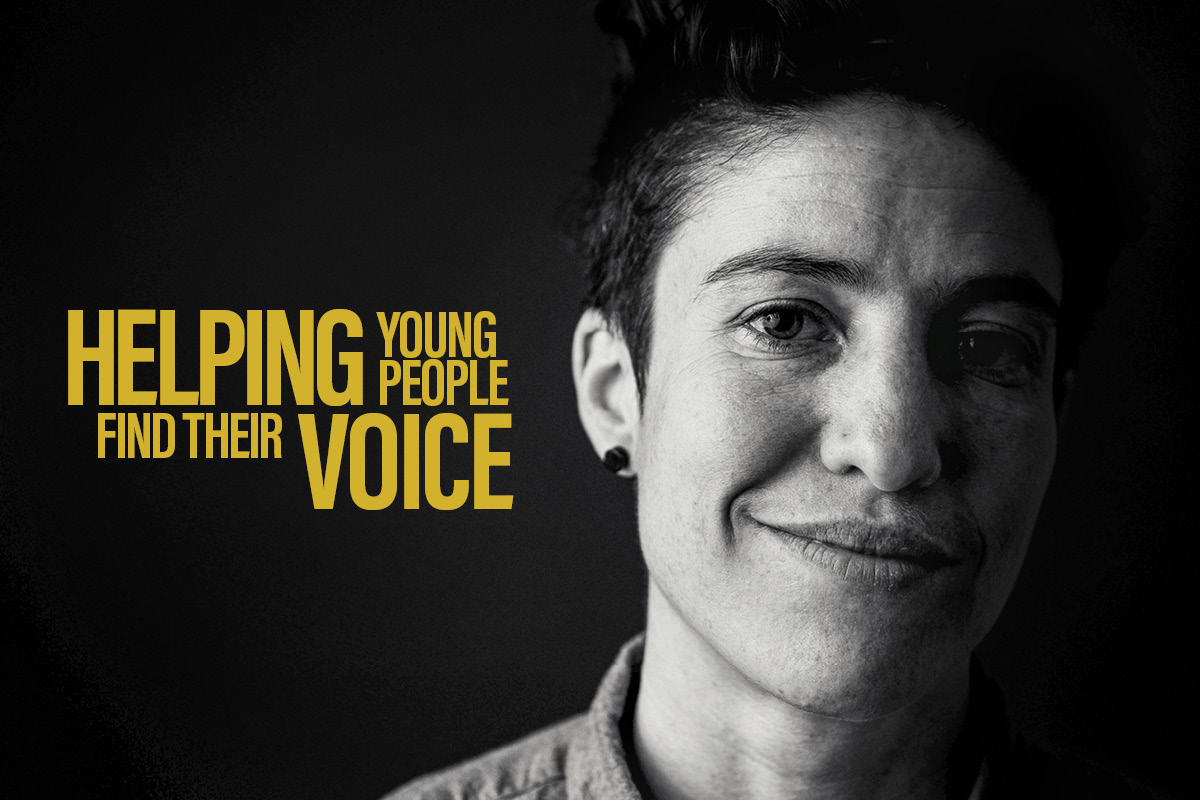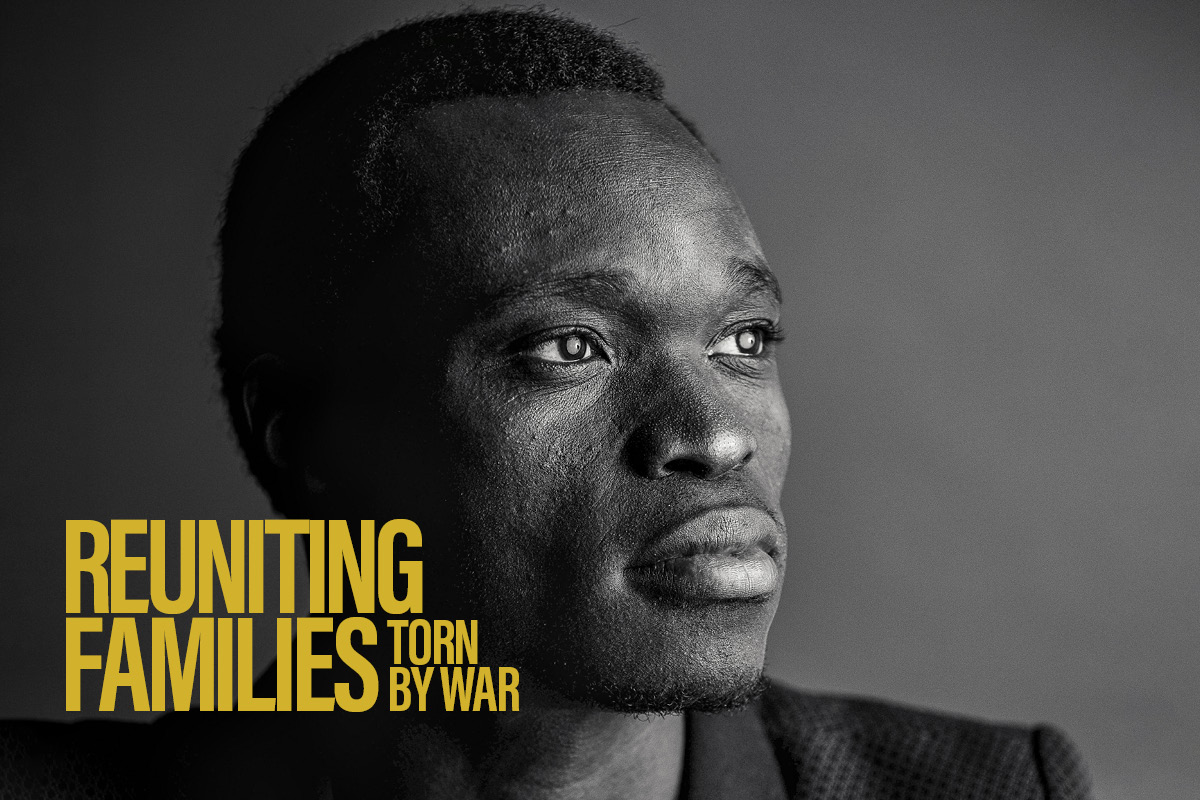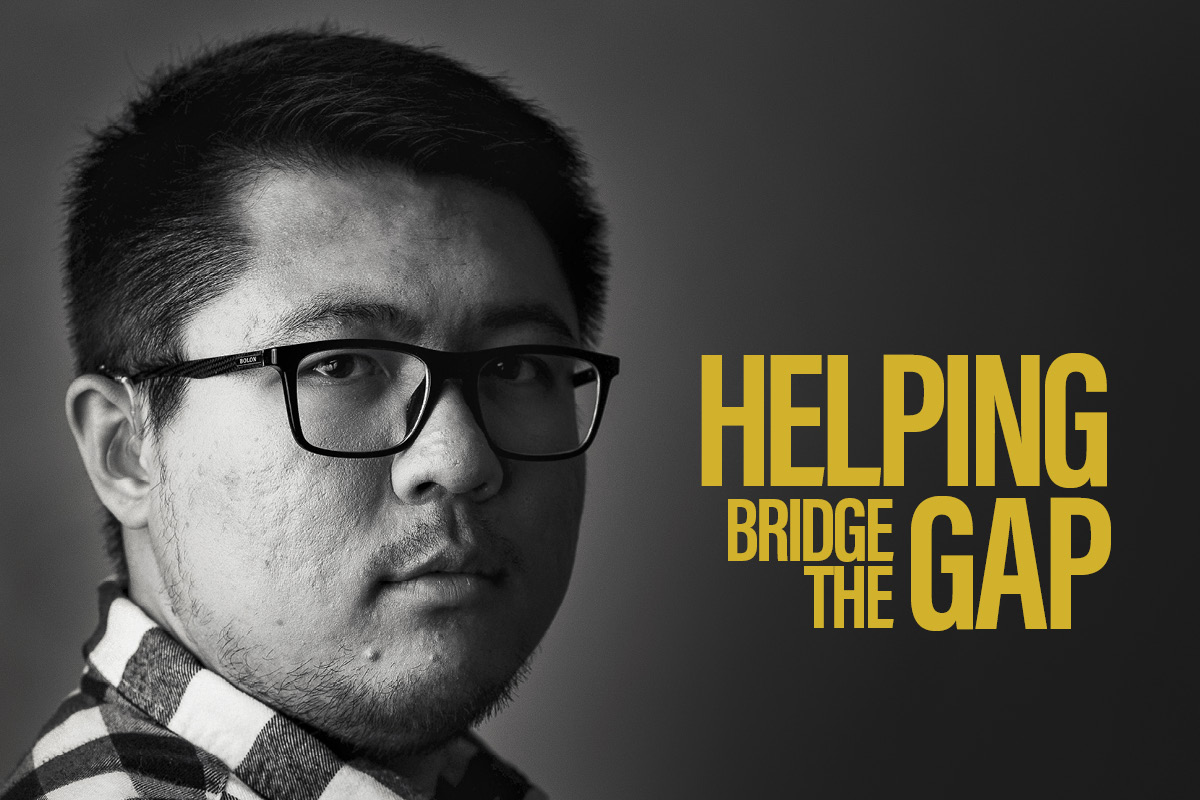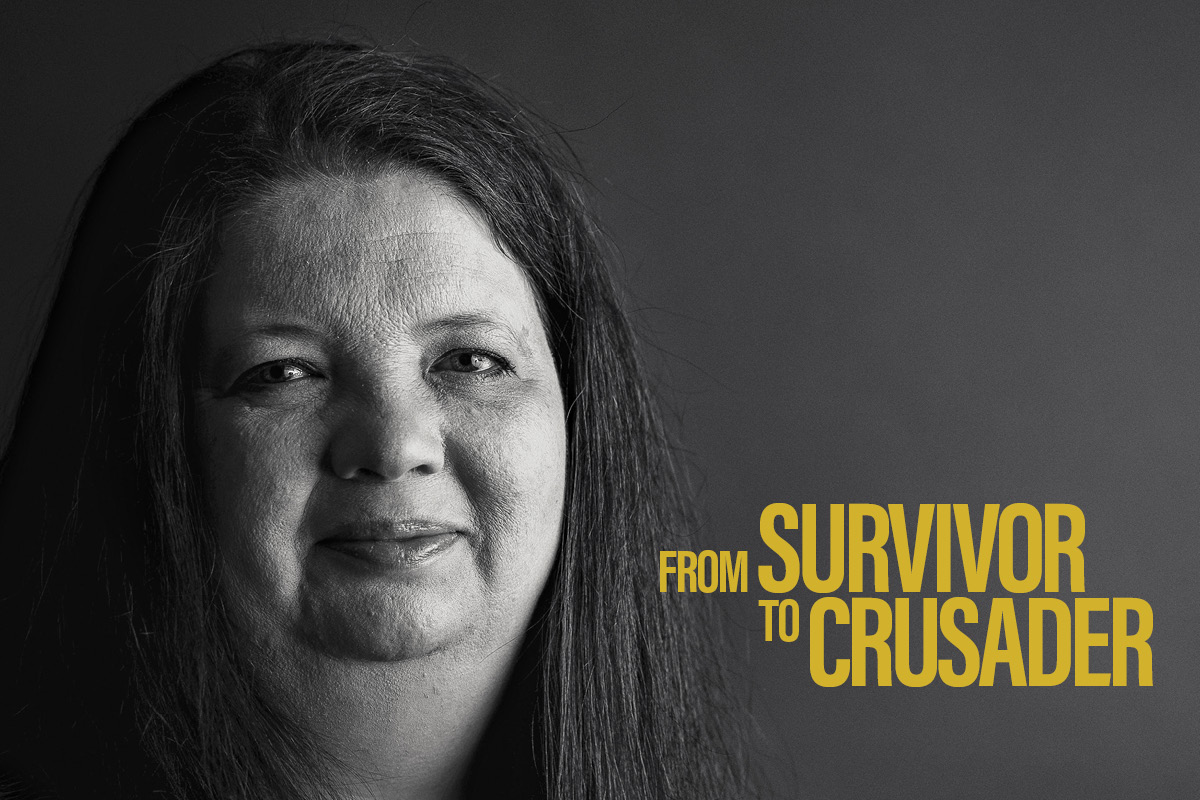Four alumni reflect on how the University changed their lives — and how they’re going on to change others’
Photography by Paul Asper

Helping Young People find their Voice
As a teenager, Nico Storrow (pronouns they/them) experienced the isolation that can accompany coming out as queer and trans, and saw how important itwas to meet others who encountered similar challenges. Today, they’re helping guide young students through similar challenges as a wellness counselor at Oceana High School in Pacifica.
“I believe it is strong communities and connectedness that builds resiliency and keeps young people alive,” Storrow says.
Storrow graduated from SF State in 2019 with an M.S. in Counseling. While at the University, they took on several internships providing therapy and facilitating support groups through schools and nonprofits. “The clinical skills, practicum experiences and mentorship from faculty, along with my incredibly supportive supervisor now, all helped prepare me to work with a number of issues that come up at the school site,” Storrow says.
Those issues can include mental health challenges, substance abuse and problems at home. Support groups have been one important avenue for providing help to struggling students, Storrow says — and it was their work at SF State that exposed them to the method’s potential.
“My experiences at a high school my first year of internship was really powerful in showing me how transformative support groups can be for building community and promoting resilience in students, especially those who are coming from underrepresented communities,” Storrow says.
In their role at Oceana High School, they work with hundreds of students, building relationships and helping with crises.
“My hope is that I can continue to help young people build community, find their voices and stories, and work towards destigmatizing mental health and reducing barriers to access,” Storrow says.

Reuniting Families Torn by War
Hunter Dalli (B.S., ’19) transferred to SF State from San Francisco City College with one dream: to build an app that would reunite children who’ve been kidnapped or separated from their families. It’s a problem he witnessed firsthand: Dalli came to the United States as a refugee from the South Sudanese Civil War.
“When I was little, many of my friends were taken and recruited into the army. Most of them didn’t come back,” he says. “Many didn’t survive the war.”
Before escaping to the U.S., Dalli worked in South Sudan as a national protection officer with Nonviolent Peaceforce, a nonprofit that trains civilians to become peacekeepers in war-ravaged regions. He first joined the organization at 23 because he wanted to find peaceful solutions to the ongoing conflicts that plagued his community. One of his last assignments before leaving the country was to negotiate the release of 28 children who were kidnapped and conscripted into an army by a local warlord. He successfully negotiated their release by convincing the warlord the children were more valuable at home with their families where they can get an education. That way they can one day advocate for the needs of the community, he said. At that point, the children had been in the army for five months.
After the children were freed, the nonprofit reunited some, but not all, with their parents. Families were hard to track down because they were constantly on the move seeking safety.
“We couldn’t keep track of the kids. I want to create something that different organizations can use to locate them in real-time,” Dalli says. “For example, if a kid moves from one refugee camp to another, organizations can track that child” using his proposed app.”
Dalli, who graduated with a degree in Information Systems, hopes to develop a database that can keep track of people’s whereabouts. In the meantime, he’s doing what most recent graduates are up to: applying for jobs. But he says he’s happy to pause his job search to meet with an investor who can turn his dream into reality.

Helping Bridge the Gap
Growing up deaf and gay in China, Cheng Yu endured periods when he felt little hope for a better future. Today, the award-winning SF State graduate student is looking ahead to a career in psychological research, where he hopes to gain a deeper understanding of discrimination.
“It doesn’t matter how many challenges and how many hardships you face,” Yu says. “You can’t give up. When you don’t give up, you still get a chance to do something more.”
During his childhood, Yu was discriminated against for his deafness and later was forced into abusive conversion therapy due to his sexual identity. After studying English, he came to the U.S. to earn a B.A. in Psychology from the University of Oregon, becoming the first in his family to go to college.
For his master’s research in the lab of SF State Associate Professor of Psychology Charlotte Tate, Yu is developing a scale for measuring how people interpret their own mannerisms in the context of their gender identity. One goal of the work, he says, is to help bridge the gap between groups that may misunderstand one another. “If you don’t understand me, you’ll be scared of me,” he explains. “By studying this field of LGBTQ people, I can help people to understand us more.” In September, he was granted one of the 23 prestigious Trustees’ Awards given each year by the California State University.
Outside the lab, Yu has participated in LGBT-focused volunteer work and intends to start an international nonprofit that will provide support for gay men in China. He also hopes to attend a Ph.D. program at the University of California, Los Angeles, something that he says his work at SF State has prepared him for by deepening his understanding of research techniques.
“Thanks to Professor Tate and the Department of Psychology at SF State, I feel I am one step closer to my dream,” he says.

From Survivor to Crusader
Mississippi native Toni Eby (B.A., ’18) returned to school to earn a college degree 23 years after she completed high school. In between high school and college, Eby became enmeshed in sex trafficking and suffered repeated physical and sexual abuse. She was heavily addicted to drugs, which led to repeated run-ins with the criminal justice system.
Eventually, Eby was referred to a nonprofit dedicated to helping survivors of sexual violence that helped her heal and gave her a fresh start. Fast forward to today, and life has come full circle for her: Eby is now the executive director of San Francisco SafeHouse, the same nonprofit where she received help.
“As someone who is deeply passionate about women’s empowerment and breaking the cycle of sexual exploitation and homelessness, it’s a great opportunity to lead an organization that changed my life,” she says.
Eby came to SF State because she wanted to earn a degree in a field that would complement her life experience: Women and Gender Studies.
“My experience adds a lot of credibility when I’m talking to women, but I also recognized that I needed more education,” she says. “I’m really interested in women and the different ways groups of women experience life, and I’ve been able to learn about that as a Women and Gender Studies major.”
Eby is currently back at SF State pursuing a master’s degree in Social Work. She hopes to use what she’s learned from the University to develop a program that serves trafficked women in the South, where she’s from. “They don’t have a lot of programs in the South to help sexually exploited women,” she says. “I have a responsibility to go home and fix some of those social issues.”